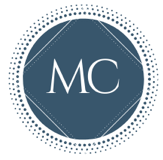I get that few people feel as warmly about dictionaries as I do. For me they are a fun, helpful, inspiring resource that makes my job easier and my writing better. For others, the dictionary is probably just a painful throwback to middle school. Diagramming sentences in 7th grade can definitely suck all the beauty out of language.
What you may not realize about even well-known dictionaries is how much they differ and how helpful those differences can be for your writing. Because professionally published dictionaries are curated by lexicographers, you might expect to get the same result for spelling and definitions and even synonyms no matter which source you consult. But, friends, English is never that easy. You will get the same part of speech, which is helpful for grammatical decisions. Also, definitions and usage recommendations for basic words (such as Dr. Seuss–type vocabulary) don’t tend to vary much between references. But even aside from the expected differences between British and American English, you can find surprising distinctions among dictionaries in both spelling (largely in hyphenation and recent introductions into the language) and in meaning.
As a tool in the toobox, I think of dictionaries more as different types of screwdrivers rather than as hammers. Their uses can be subtle, almost surgical, rather than blunt. Therefore, which dictionary I use depends on what I need to accomplish. It’s not uncommon for me to go through a variety of references when I’m stuck, trying to find the right tool for the job.
Here are the online dictionaries I use regularly and why:
Merriam-Webster: The collegiate version, or MW11, as it is commonly known, has been the arbiter of choice for almost every publishing house I have ever worked for, making it the final word on spelling for most printed materials in the United States. A subscription to the online MW Unabridged gives me access to the collegiate version as well. Because of its chosen status, MW is my go-to source for spelling, although annoyingly the collegiate and the unabridged versions do not always agree. But they share helpful notes for understanding usage. The MW discussion on “they” as an acceptable singular pronoun is very satisfactory. For business writing, the modern MW is the most efficient dictionary I use, though it is sometimes uninspired.
American Heritage Dictionary: I still have my bulky 14th edition on my shelf (just in case my internet access is out and I have a dictionary emergency. Don't judge.). However, the online AHD is disappointing in that it is not nearly as rich and entertaining as the print version. What I love about the AHD is that it is a blend of dictionary and encyclopedia, so that historical figures, botanical names, and other terms not normally found in a standard dictionary have professionally reviewed entries here. This means my beloved print copy of the AHD is more than just a tome of spellings, pronunciation guides, and definitions. Flipping through its pages reminds me of walking the stacks of a library, taking in all the knowledge amassed through the invention of the written word.
Oxford Dictionary: The online Oxford is, in my opinion, a better resource for understanding subtle distinctions and hues of words than Merriam-Webster. MW can be dry, where the OD definitions and example sentences provide luster (lustre) and often better synonym choices. However, understanding the sometimes subtle differences between American usage and the British-based OD might be difficult for a non-native speaker. The related, more historical version, the Oxford English Dictionary (or OED), is available only as a subscription.
Webster’s 1913 and 1828 dictionaries: When I really need a muse to propel an idea forward, I often reach back into older reference works to help me find the means to express a larger truth. While the modern MW is great for spelling consistency and quick checks on parts of speech or other grammatical issues, it can be too perfunctory for deeper ideas.
Consider these definitions for the noun authority, first from the modern and business-like MW Unabridged:
- a conclusive statement or aggregate of statements (such as an official decision of a court): decisive declaration taken as a precedent
- power to require and receive submission: the right to expect obedience: superiority derived from a status that carries with it the right to command and give final decisions
- delegated power over others
Now let’s read the definition of authority from Webster’s 1913 (in this case unchanged from Noah Webster’s original 1828 edition):
The power derived from opinion, respect, or esteem; influence of character, office, or station, or mental or moral superiority, and the like; claim to be believed or obeyed; as, an historian of no authority; a magistrate of great authority.
I don’t have to think a whit about which definition opens my imagination and activates my senses. How ashen would all our writing be if we forgot that words are meant not only to convey knowledge but also acknowledge the human experience. And shouldn’t that deeper connection always be the goal, no matter how instructional (or conversely, how light) the material?
So the next time you are looking for some inspiration in your writing, try using a dictionary.
